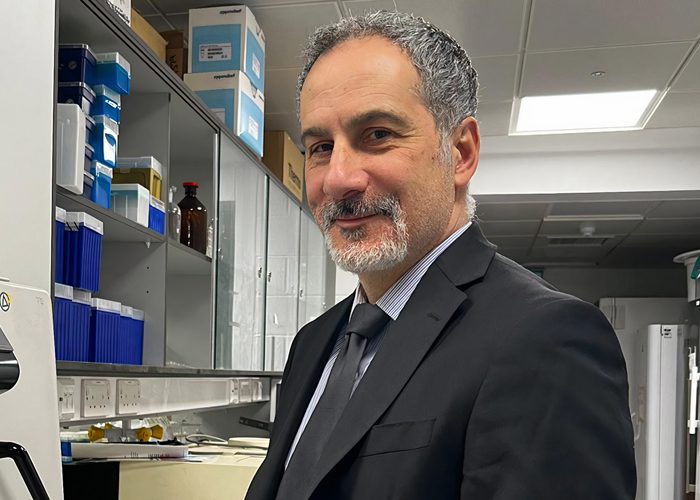TINY ‘superhero’ micro-organisms that have natural abilities in cleaning up our planet are the focus of a new £13m innovation centre involving universities including Heriot-Watt.
The new Environmental Biotechnology Innovation Centre (EBIC), led by Cranfield University, brings together scientists from ten UK universities to advance the abilities of micro-organisms to monitor the environment and remove pollutants. It’s the first research group of its kind in the UK.
The new centre is being established with £13 million of funding from the Technology Missions Fund of UK Research and Innovation – the UK’s national funding agency for investing in science and research – and support from the Biotechnology and Biological Sciences Research Council, which invests in bioscience research and training in the UK. Bioscience is the study of living organisms.
Tony Gutierrez, Associate Professor of Environmental Microbiology and Biotechnology at Heriot-Watt University’s School of Engineering & Physical Sciences, explained: “Micro-organisms, or microbes, are microscopic organisms that are like tiny but effective ‘superheroes.’ Whilst they can only be seen through a microscope, they can be used, for example, to clean up almost any pollutant from the environment.”
Professor Gutierrez is a microbes expert who studies the role of micro-organisms in the environment and has specialised for more than 20 years in the discovery of microbes that produce biosurfactants – natural detergent-like compounds that are used in practically every sector of modern industry today.
“Biosurfactants are like molecules of soap which mix oil and water together, and because of this they’re used in the manufacture of virtually any product you can think of, from cement, clothing, foods and beverages, to paint and carpet,” Professor Gutierrez explained. “One of the areas my research team will be looking at in this project is developing new microbial processes for producing powerful biosurfactants to clean up environmental sites contaminated with toxic chemical pollutants.”
A particular ‘superhero’ quality of microbes is their ability to evolve to tackle new chemical pollutants they may not have encountered before, Professor Gutierrez added.
“Industry makes thousands of new chemicals every year, some of which get into the environment and cause serious environmental damage,” he said.
“We rely on microbes to break down these compounds and reduce their toxicity and overall environmental impact.”
Scientists involved in the five-year EBIC project will examine ways to develop micro-organisms to target and mitigate negative impacts from polluting substances like plastic waste, hydrocarbons, metals and oil. Micro-organisms will not only be used to clean up hazardous and toxic pollutants from the environment, but also to help regenerate or recycle waste.
Cutting-edge techniques from synthetic biology, biotechnology and environmental engineering will be used to develop applications in the lab and then apply them in the field.
With a focus on responsible and ethical research practices, the research team will examine and develop new ways to tackle three key areas:
- Next-generation biosensing – using biomolecular approaches to detect chemical changes – for environmental monitoring and surveillance
- Bioremediation – using microorganisms to break down and reduce the toxicity of environmental pollutants – to promote cleaner and healthier ecosystems
- Enhanced wastewater and waste management to improve resource recovery, optimise treatment processes and reduce waste generation
Engineering biology is identified as one of the UK Government’s five critical technologies in its Science and Technology Framework.
Professor Steve McLaughlin, Deputy Principal of Research and Impact at Heriot-Watt University, said: “At Heriot-Watt University, we are committed to using our deep research and teaching expertise to help to tackle global challenges like pollution and climate change. This project shows how we can make a real impact through science and collaboration.
Professor Leon A. Terry, Pro-Vice Chancellor for Research and Innovation at Cranfield University said: “This new research centre is set to bring together some of the UK’s leading experts in biotechnology to create a world-class hub of excellence. Working closely with industry and focused on real-world applications, the research will develop a creative and sustainable way to address some of our most pressing environmental challenges.”
Alongside Heriot-Watt, the eight other universities Cranfield is working with at the Environmental Biotechnology Innovation Centre are Brunel University London, the University of Essex, Bangor University, the University of Edinburgh, the University of Southampton, the University of East Anglia, the University of Glasgow and Newcastle University.
